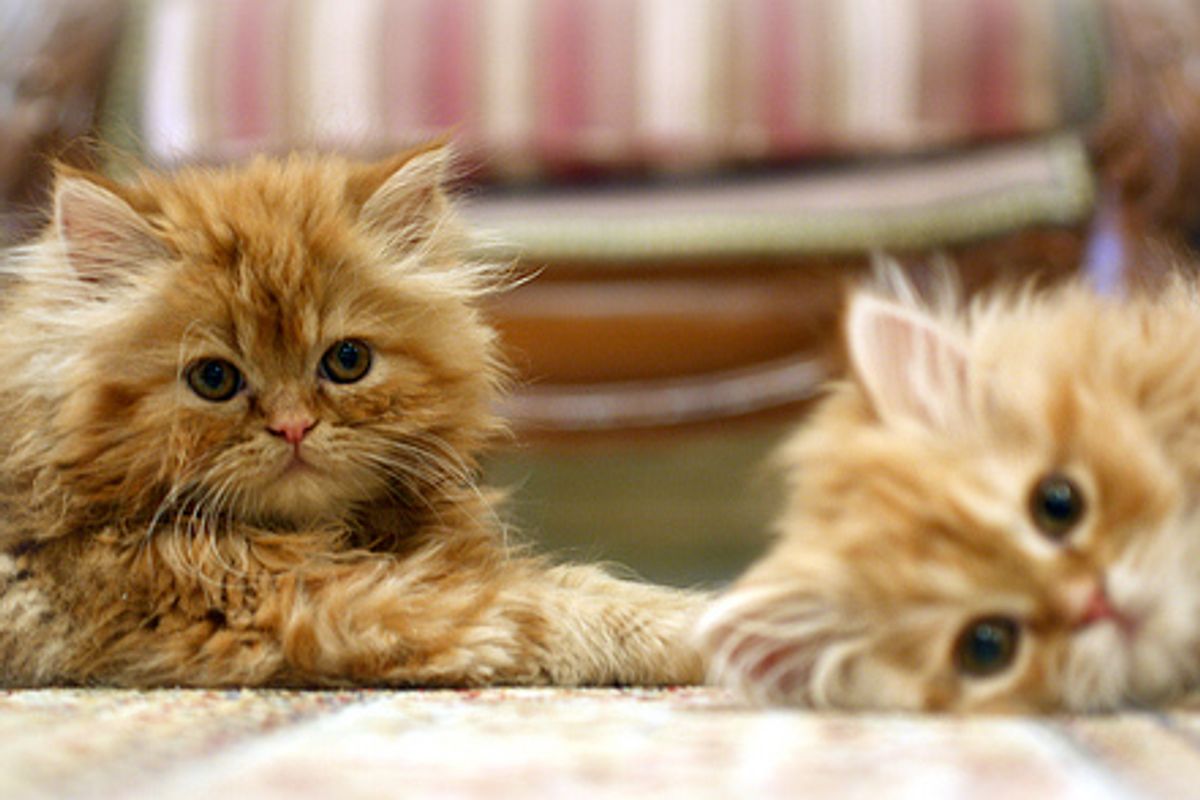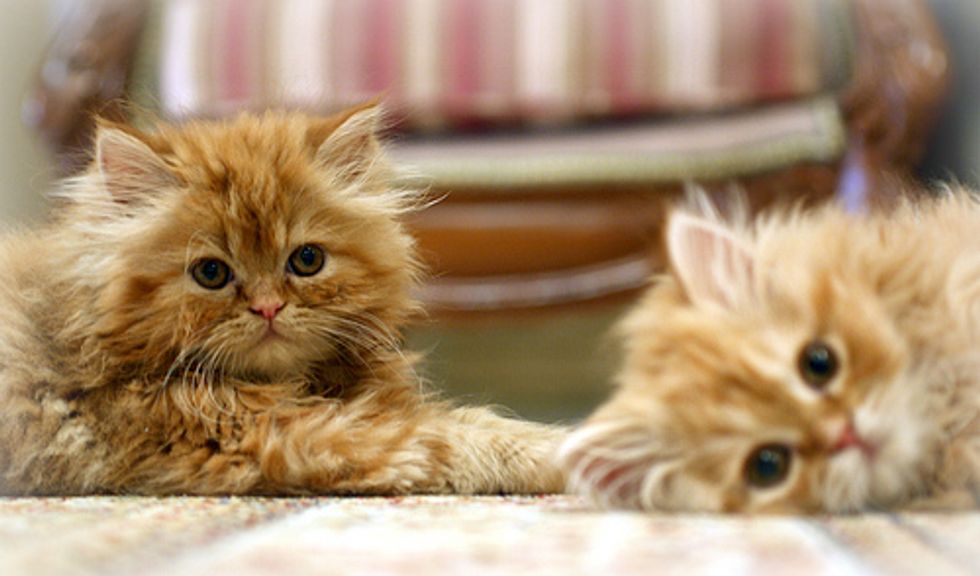In a multi-cat household, a cat that has not been neutered or spayed may spray around the house for numerous reasons. Neutering and spaying can significantly reduce chances of spraying.
Why do cats spray?
There are two types of cats spray according to Pam Johnson-Bennett, a feline behaviorist:
The first type of cats spray comes from cats that are confident and tend to present themselves as the dominant figure in a multi-cat household. The other type of cats spray stems from cats that are slightly intimidated, less confident and even somewhat timid. Marking territory is a common goal for spraying in both types of felines. However, sometimes these two types of felines spray for very different reasons. [Control Urine Spraying & Help Unhappy Distrustful Cats]
Confident cats:
Besides marking territory in a new place, an unfixed cat can use it to display its sexuality especially during mating season. Also, if the dominant cat comes across an equally confident cat, he may use spraying to emphasize its status in the house in order to pressure the other cat into subservience.
A confident cat enjoys patrolling around his territory and subsequently leaving his mark along the perimeter to signal other cats that this is his domain. However, sometimes they spray simply because they won a fight against another cat in the same colony, thus spraying is a way for them to display victory.
Finally, spraying can also be interpreted as a sign of offensive aggression especially when they are facing a threat or something they identify as dangerous.
Less Confident Cats:
Besides marking territory, spraying to these less confident cats is a way to show passive or defensive aggression. They are probably intimidated by a new cat in the house, applying spraying as their last resort in hopes of getting themselves out of a threat or avoid direct confrontation with a new cat. Also, spraying can help these timid cats to gather information they need within their proximity. A less confident cat may use spraying as a medium to exchange information with another cat in the same territory, so he can avoid direct encounter with the new cat.
How to Stop Spraying
1. When cats do not have enough room in the house, they become territorial. If space is limited in your home, you can add perches or ramps in the house to create extra areas for them to rest and roam around. It can effectively reduce territorial conflicts in the house.
2. If cats sense a foreign scent from another cat, they will become territorial. In helping those cats to decrease their stress level, cat owners can rub down the new cat with a towel and bring it over to the aggressive cat to sniff and play with. By the time the old cat gets used to the new scent, his aggression will subside.
3. Cat owners can also consider using a cat gate to separate the cats at the beginning. Allow them to sniff and study each other through the gate. Cats use their facial pheromone to mark places they have been to. It is a safety indicator for them. By sniffing and smelling another cat face to face, they are swapping personal scent with each other, getting to know one another in a much deeper level.
4. Cat owners can consider using Feliway Comfort Zone, a great product to help prevent spraying in a multi-cat household. It sprays a scent that is similar to the smell of a cat's facial pheromone which calms the cats and prevent many undesirable behaviors.
References:
Cat vs. Cat by Pam Johnson-Bennett
Image: glamorous_girl


